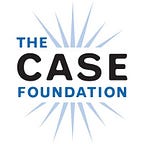Hispanic Heritage Month: Celebrating Latinx Entrepreneurs
In celebration of Hispanic Heritage Month, we have been reflecting on the transformative achievements of Latinx Americans and the strong history of entrepreneurship in the Latinx community. For decades, Latinx entrepreneurs across the US have been building businesses. As the 20th century progressed, many of these businesses expanded to serve well beyond their immediate communities, and as a result, Latinx entrepreneurs have had a profound impact on the US economy. Studies show that the number of Latinx-owned businesses in America is still growing at a rate that outpaces just about every other ethnic group, and, from 2007 to 2015, nearly half of the growth in new Latinx businesses came from firms started by women. These accomplishments are occurring despite the funding challenges that Latinx entrepreneurs face when trying to access capital, whether it is bank loans, venture capital and angel investments. Recent data shows that only 1.8 percent of venture-backed companies have a Latinx founder and only 12 percent of Latinx-owned businesses with more than one employee receive bank loans. Small Latinx-founded businesses tend to rely on friends and family for capital or their own credit cards, and those who have high growth potential companies seek funding from venture capital firms but are consistently facing barriers to receiving such funds. The pipeline of Latinx founders is strong, yet the funding gap persists.
Despite these obstacles, Latinx leaders continue to change the world through innovative ideas. Here at the Case Foundation, we’re especially excited to uplift Latinx entrepreneurs and the groundbreaking work they are doing in communities across the country. The coverage Latinx entrepreneurs receive is integral to expanding their impact and getting on the radar of investors and other resource providers that help entrepreneurs succeed. To celebrate this history of innovation and shed light on the continued efforts of Latinx changemakers, we are highlighting a few outstanding Latinx entrepreneurs who have been featured in our Faces of Founders platform. By showcasing Latinx-led businesses, we hope to encourage others to follow in their footsteps, create startups of their own and inspire them to Be Fearless.
Kristen Sonday co-founded Paladin, a digital platform that matches lawyers with pro bono cases. A few weeks after launching, Paladin grew from 50 members to over 1,500 in the wake of the travel ban initiated by the Trump administration. Sonday was a first-generation student at Princeton and gained experience in the legal field and its complexities while working as an international affairs specialist for the Department of Justice. She then pivoted to entrepreneurship, helping to launch a meet-up app. After meeting co-founder Felicity Conrad and successfully launching Paladin, Sonday now works as the COO of the platform, which serves New York City, Baltimore, Chicago, and San Francisco. She is hoping to expand the platform both across the US and internationally, as well as add pro bono opportunities in other fields such as engineering and finance.
Jaime Martinez is the founder and CEO of Schola, an educational technology platform that uses the requirements and interests of a child to allow families to find the best fitting schools and programming, from pre-K through grade 12. While in the Teach for America program, Jaime observed that some of his students had specific talents and needs that could be better addressed by programs at other schools. To address this problem he started Schola, which matched and enrolled more than 150 students in the first few months after its launch. He went through the incubators SEED SPOT and LearnLaunch and hopes to expand the reach of Schola to help more children in the future.
Dyan Gibbens, a Latinx female founder and Air Force veteran, launched an unmanned aerial vehicle (UAV) startup in 2013 with her husband. The startup, Trumbull Unmanned, was funded using their personal savings. Since then, with their expert team of five, Trumbull Unmanned has remained profitable without receiving any institutional funding. With UAVs, Trumbull Unmanned collects data supporting efforts to monitor oil and gas leaks. Gibbens attended the Air Force Academy, became a trained pilot and served on the Air Force Parachute team for three years. She then turned to governmental consulting and worked on engineering and logistics support for Air Force One. She moved onto entrepreneurship not only address environmental issues but to inspire the next generation of STEM leaders and underrepresented founders.
Know any outstanding Latinx entrepreneurs? Uplift their work on social media, and be sure to tag @CaseFoundation so we can show our appreciation as well! We look forward to hearing from you!
